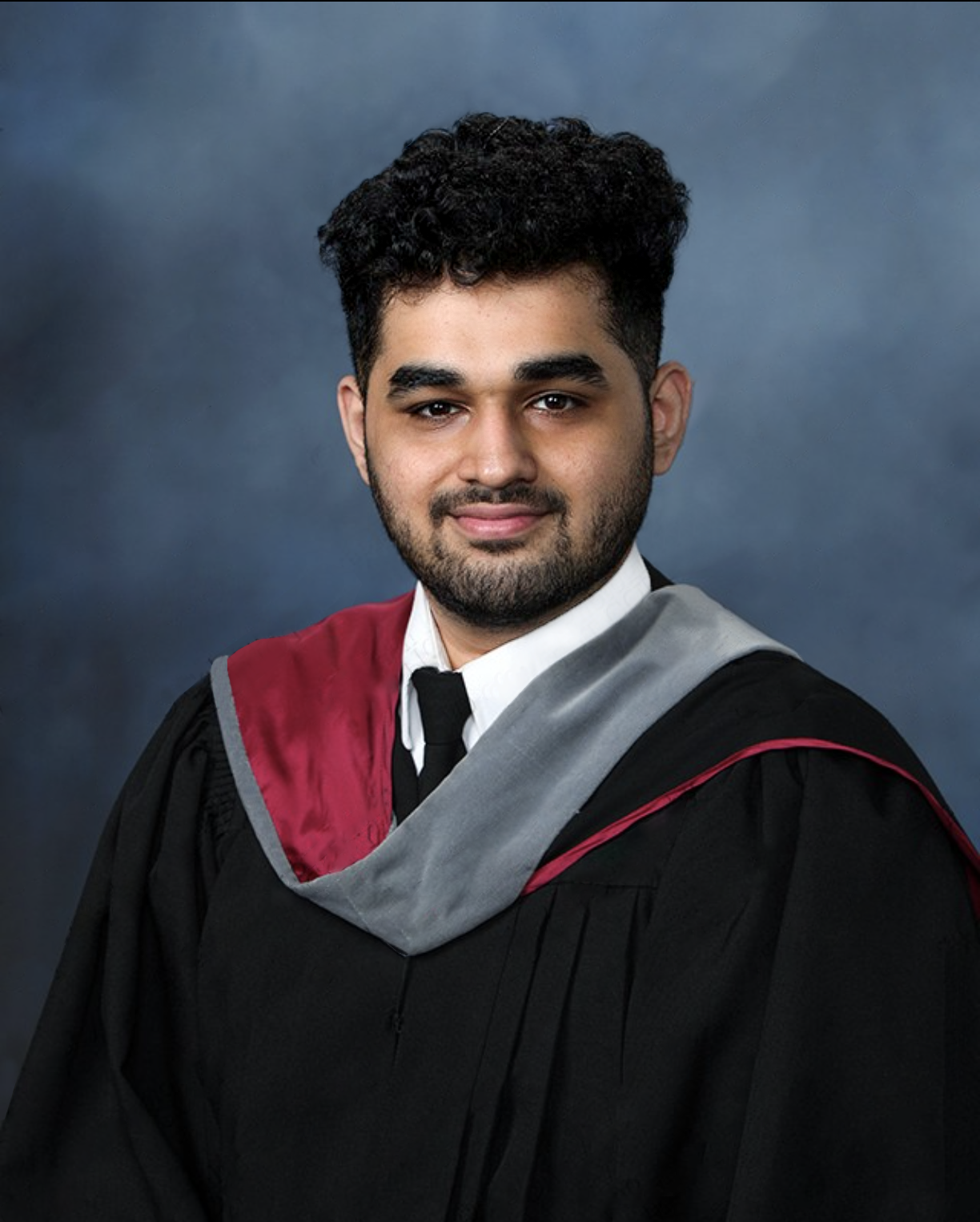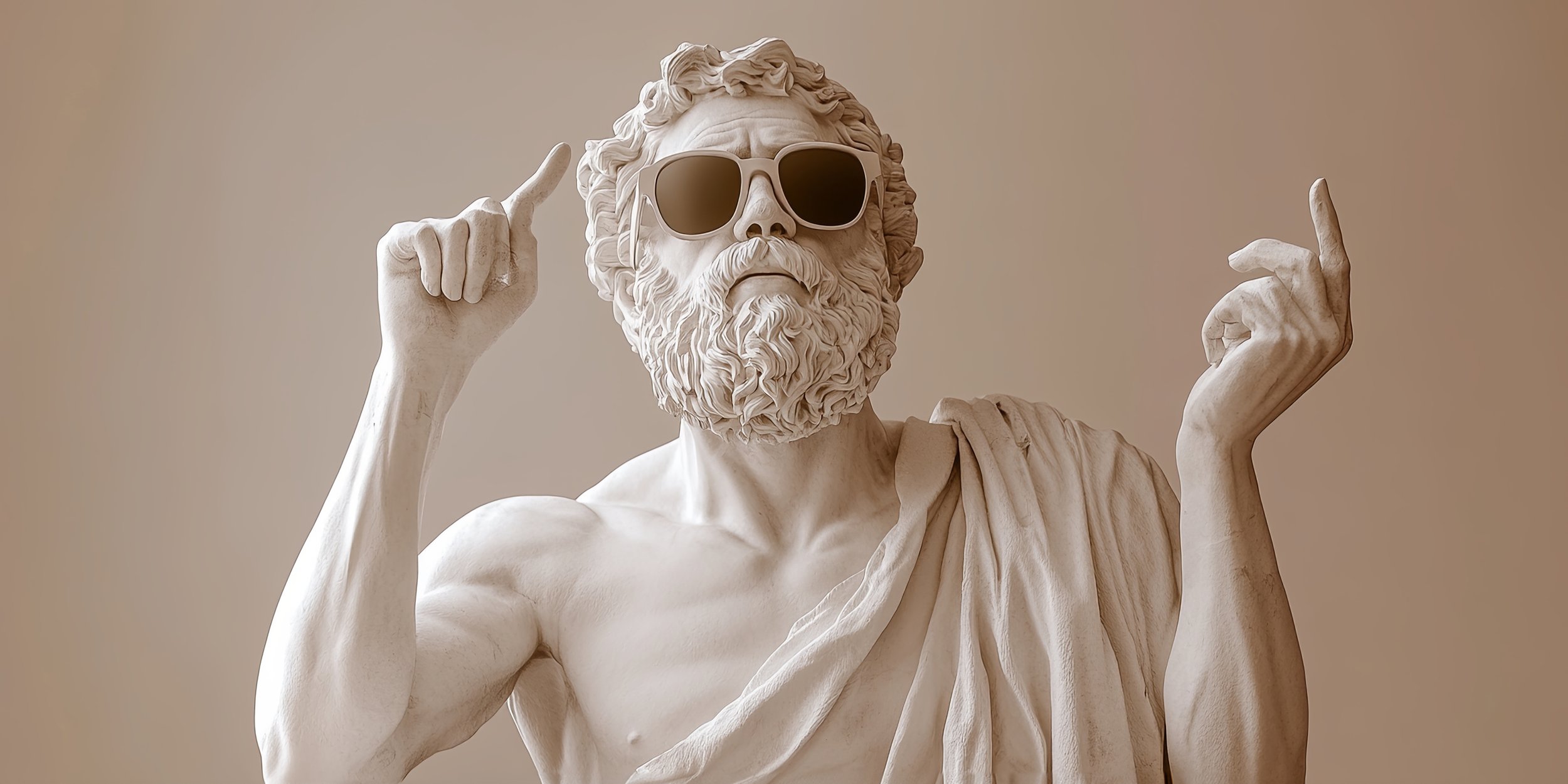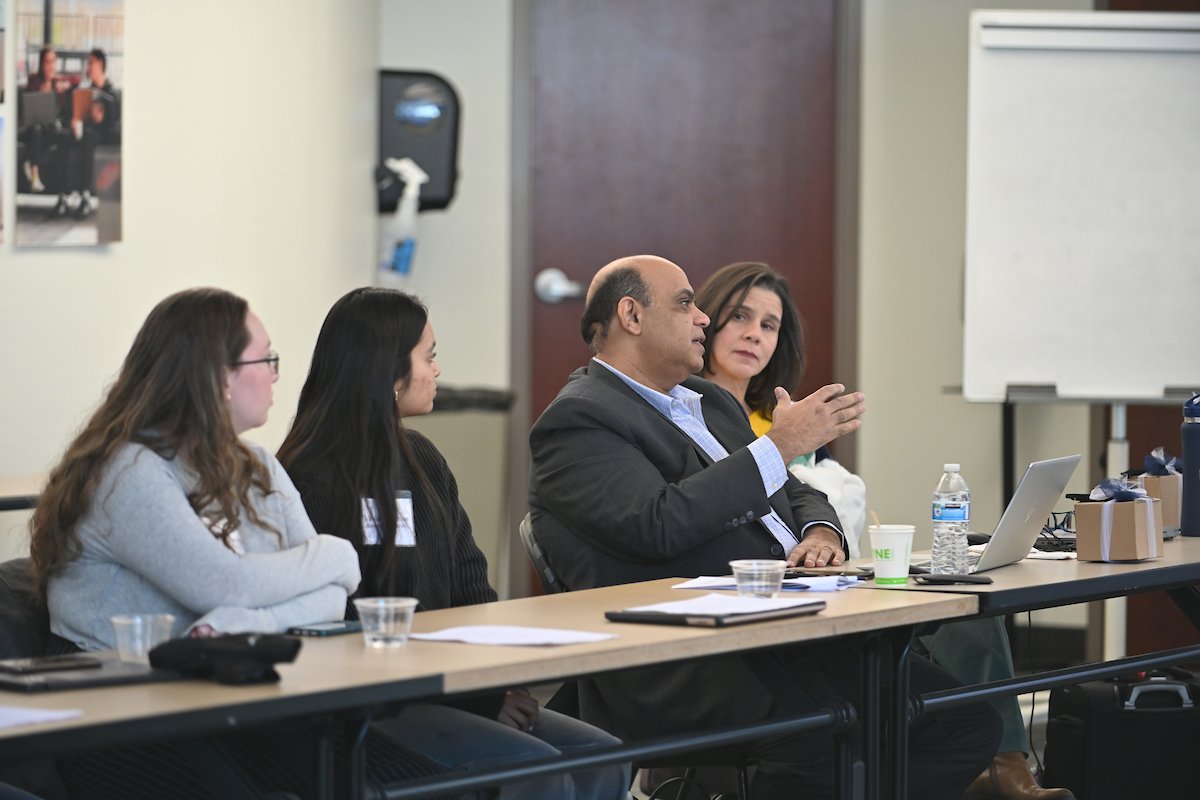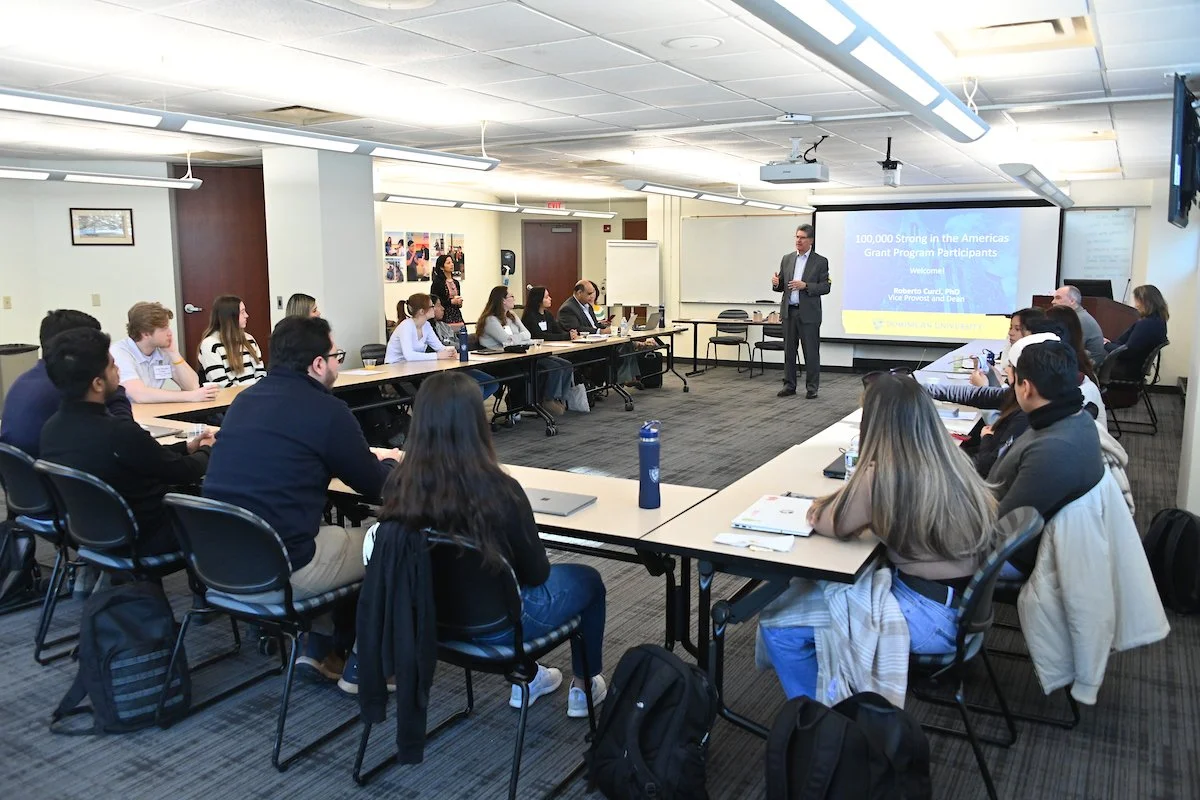The vibrant energy of jazz, the universal love for pizza and the critical need for climate change solutions—an unexpected fusion of experiences shaped the Sobey School of Business students' transformative trip to Chicago, proving despite apparent divisions, Canada, the U.S., and Mexico can unite over global sustainability.
During February's reading week, six ambitious Bachelor of Commerce students from SMU ventured to the Windy City for the "Developing Climate Leaders" course, guided by Dr. Rahman Khokhar, Associate Professor of Finance at the Sobey School of Business.
Now in its third year, this innovative program showcases how cross-border cooperation can further sustainable business practices.
International efforts in action
Teamed with peers from Dominican University (Chicago, IL) and Universidad Anáhuac (Mexico), the students dove into assessing sustainability practices at companies like Top Pallets, Wintrust Financial, and Pepper Construction.
Their mission was clear: to bring fresh, actionable insights back from their research. This work was supported by funding from the 100k Strong in the Americas Innovation Fund and the Linton Family Sustainability in Business Trust, established by Bill Linton BComm'75, DComm'22 and Marilynne Day-Linton.
During their stay, the students presented their findings to company executives on-site and toured the facilities, gaining direct insights into operations and real-world experience.
"Being able to interview the COO of Top Pallets opened my eyes to the critical role of green supply chains,” said Barbara Ellis, a second-year undergraduate student. “I loved collaborating with a cross-cultural group of students. We came up with solutions to practical business problems that could have a real impact."
Halifax to Chicago: beats and eats
The cultural experiences formed a core part of their journey. From tasting Chicago's legendary deep-dish pizza to grooving to a live jazz band, the students immersed themselves in the local scene.
“I am starting to understand how different cultures might approach sustainability initiatives. Before this trip, my perspectives were short-sighted, but now I see the importance of hearing from different viewpoints,” said Zayna Eissa, a second-year undergraduate student and Sobey National Innovator Scholar. “I also loved trying new foods and I really admired the architecture in Chicago. That’s the beauty of international learning."
“Just getting out of Halifax over the break,” said Cole Fraser, a third-year undergraduate student, on his highlights of the trip. “The food scene, visiting the Morton Arboretum, and the nights spent exploring downtown Chicago with a great group of students were unforgettable.”
Empowering students as sustainable business leaders
The course included various team efforts, including a social media campaign promoting carbon neutrality and a real-world sustainability challenge about Walmart and one of its suppliers.
Through this exercise, students strengthened their problem-solving and presentation skills, gained insight into supplier negotiation dynamics, and explored how sustainability decisions today can significantly shape global supply chains of the future.
The Sobey School of Business is proud of its commitment to fostering future leaders who are ready to tackle the world's pressing environmental issues with innovative, culturally informed approaches.
Additional resources






































































